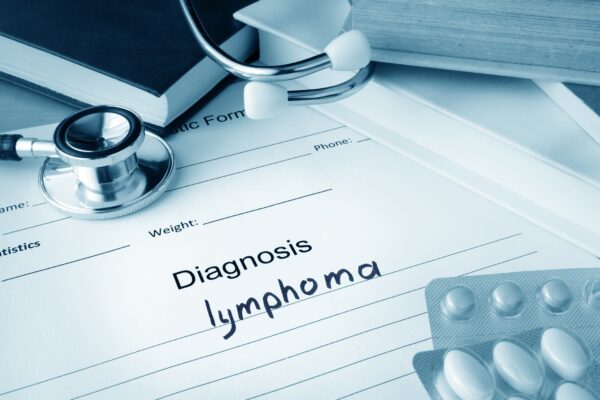
Results of a phase II study show that the T-cell engager bispecific antibody mosunetuzumab induces a high rate of complete responses (60%) in patients with relapsed/refractory follicular lymphoma who received ≥2 prior lines of therapy (3L+ R/R FL). Interestingly, this high response rate was also observed in difficult to treat patient populations and the treatment came with a manageable safety profile.
FL is characterized by frequent relapses with decreasing progression-free intervals with successive lines of conventional therapy. In later treatment lines, available therapies are often less effective due to the development of refractory disease. Mosunetuzumab is a bispecific antibody that redirects T cells to eliminate malignant B cells by simultaneously targeting CD20 and CD3. Previous results from a dose-escalation phase of an ongoing phase I/II study showed that mosunetuzumab is highly active and well tolerated in the treatment of R/R FL patients who received 2 or more prior lines of therapy (3L+ R/R FL). In this trial, researchers also established a step-up dosing protocol during treatment cycle 1 to mitigate the risk for cytokine release syndrome (CRS). During ASH 2021, the first pivotal data of this trial were presented looking into the efficacy of mosunetuzumab monotherapy at the recommended phase II dose (1/2/60/30mg) in a large expansion cohort of 3L+ R/R FL patients.
Study design
The study at hand enrolled 90 patients with FL (Grade 1–3a) and an ECOG PS ≤1, who were R/R to ≥2 prior lines of therapy including an anti CD20 antibody and an alkylator. Mosunetuzumab was given intravenously in 21-day cycles with step-up dosing in C1 (C1 Day [D]1: 1mg; C1D8: 2mg; C1D15 and C2D1: 60mg; D1 C3+: 30mg). Treatment was discontinued at C8 in patients who achieved a complete response (CR), while patients with a partial response or stable disease continued treatment for a total of 17 cycles, unless disease progression (PD) or unacceptable toxicity occurred. The primary endpoint was CR (as best response) rate by PET/CT assessed by an independent review facility (IRF).
Results
The median age of patients in the study was 60 years, 61.1% was male and 58.9% had an ECOG performance status of 0. About three quarters of patients had Ann Arbor stage III-IV disease and patients received a median of 3 prior treatment lines (range 2-10). One fifth of patients previously underwent an autologous stem cell transplantation and 53.3% was refractory to an anti CD20 therapy and to alkylator therapy (i.e., double refractory). Finally, 52.2% of patients had progression of disease within 2 years (POD24).
The median follow-up for the presented analysis was 18.3 months. Overall, 23.3% of patients received less than 8 treatment cycles, 58.9% received 8 cycles, 5.6% received between 8 and 17 cycles and the remaining 12.2% received 17 cycles of treatment. At the time of the analysis, 2.2% of patients were still on active treatment. A CR per IRF was reported in 60% of patients with an additional 20% having a partial response (ORR: 80%). This CR rate of 60% is significantly greater than the historical CR rate in this setting which is estimated at 14% (p< 0.0001). Interestingly, the response rate proved to be similar across all investigated subgroups, including double refractory and POD24 patients. Responses were durable with a median duration of response among all responders of 22.8 months. The event-free survival rate at 12 and 18 months was reported at 62% and 57%, respectively (among CR patients these rates were 76% and 70%). The median progression-free survival was reported at 17.9 months.
Mosunetuzumab came with a manageable safety profile. Grade 3/4 adverse events related to mosunetuzumab were seen in 51.1% of patients with mosunetuzumab-related serious adverse events in 33.3%. Mosunetuzumab-related adverse events only led to treatment discontinuation in 2.2% of patients. CRS was the most common adverse event occurring in 44.4% of patients. However, this CRS was mostly confined to C1 and generally low grade. High grade CRS only occurred in 2 patients. Other common (≥20%) adverse events were fatigue (36.7%), headache (31.1%), neutropenia and pyrexia (28.9% each), hypophosphatemia (22.2%), and pruritus (21.1%). Common grade 3/4 adverse events (66.7% overall) were neutropenia (26.6%), hypophosphatemia (13.3%), hyperglycemia and anemia (7.8% each), and elevated ALT (5.6%).
Conclusions
Mosunetuzumab induced deep and durable remissions in 3L+ R/R FL patients, including patients with POD24 and patients with double-refractory disease. A striking 60% of patients had a CR and responses proved to be very durable with a median duration of response of almost 2 years. Mosunetuzumab comes with a manageable safety profile, with C1 step-up dosing effectively mitigating CRS, enabling treatment without mandatory hospitalization. As such, this study identifies mosunetuzumab as the first T-cell engager bispecific antibody demonstrating meaningful clinical activity in R/R FL patients.
Reference
Budde E, et al. Mosunetuzumab Monotherapy Is an Effective and Well-Tolerated Treatment Option for Patients with Relapsed/Refractory (R/R) Follicular Lymphoma (FL) Who Have Received ≥2 Prior Lines of Therapy: Pivotal Results from a Phase I/II Study. Presented at ASH 2021; Abstract 127.